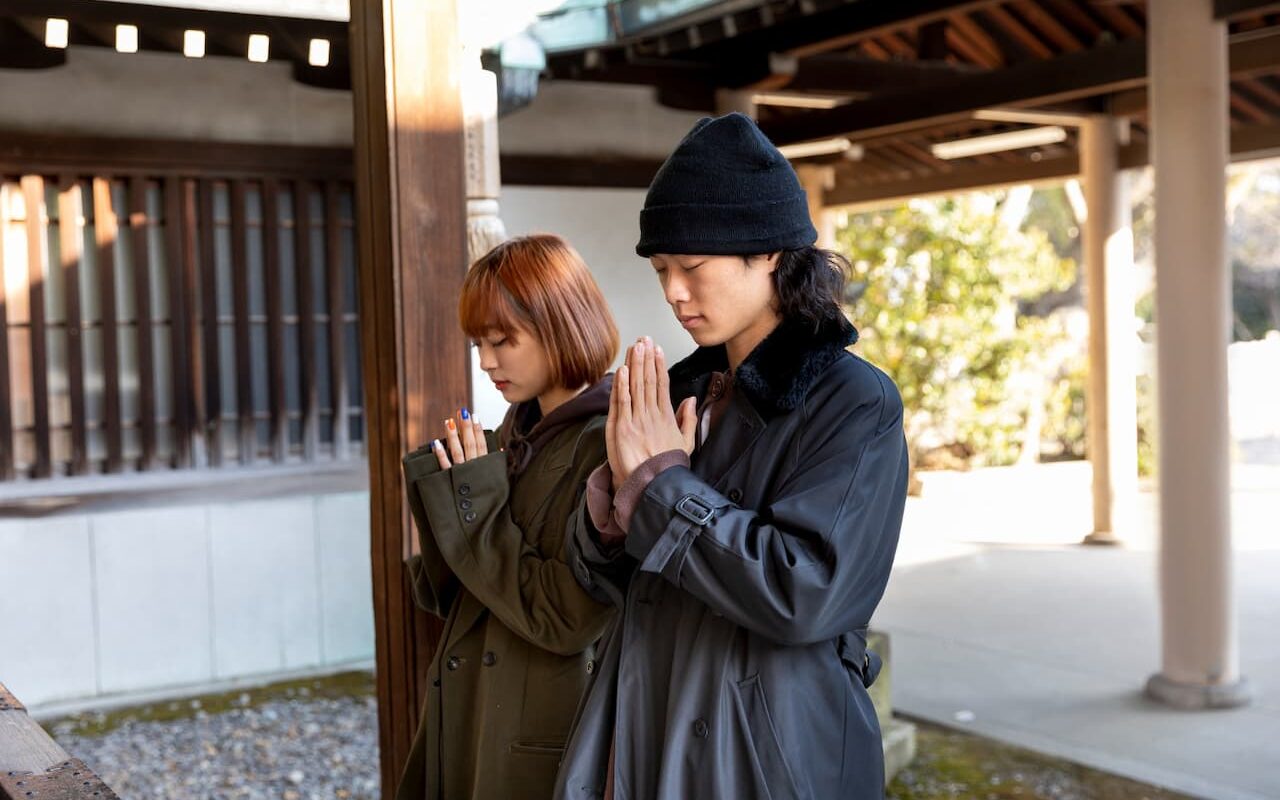In the heart of East Asia lies South Korea, a nation celebrated for its breathtaking landscapes, delectable cuisine, and booming pop culture. Yet, beneath the surface of this vibrant nation lies a profound tapestry of religious diversity and harmony that has shaped its history, culture, and society. Join us on a journey to explore the spiritual landscape of South Korea, where ancient traditions peacefully coexist with modern beliefs.
Buddhism: South Korea’s Spiritual Anchor
Buddhism, introduced to the Korean peninsula over 1,600 years ago, stands as a spiritual anchor for the nation. Over centuries, it has grown and evolved, reflecting the fusion of indigenous beliefs and practices. Korean Buddhism’s enduring presence showcases its adaptability and enduring relevance in an ever-changing world.
Today, as you traverse the picturesque Korean landscapes, you’ll encounter these sanctuaries of tranquillity, each telling a unique story of devotion and mindfulness. These temples and monasteries not only serve as places of worship but also as centers for cultural preservation and the promotion of peace and harmony.
Christianity in South Korea: The Rising Faith
In the past few decades, Christianity has experienced remarkable growth in South Korea, cementing its prominent role within the religious landscape. What began as a modest presence in the late 19th century has since blossomed into a substantial and influential community. Today, an array of diverse denominations boasts flourishing churches that transcend mere Sunday worship, leaving a profound impact on various facets of society, including education, social services, and even the political arena.
Shamanism and Folk Religions: Connecting with Ancestral Spirits
Shamanism and folk religions in South Korea have deep roots, connecting practitioners with ancestral spirits and natural deities. Despite modernization, these traditions thrive, offering insights into the nation’s cultural identity. They play a pivotal role in Korean society, especially during significant life events. Perhaps that is why South Korea betting sites are so popular among locals. These practices are ingrained in South Korea’s history, reflecting the spiritual-earthly relationship and coexisting with contemporary influences. Korean shamanism and folk religions aren’t relics but living expressions of a heritage evolving with time, providing a profound spiritual connection and showcasing tradition’s resilience in a modern world.
Interfaith Relations: Bridging Differences
South Korea stands out for its exceptional achievement in fostering harmonious coexistence among diverse faiths. This accomplishment is not a distant dream but a vibrant reality. Buddhists, Christians, and adherents of traditional beliefs actively engage in interfaith dialogues and collaborations, transcending mere aspirations to create palpable harmony. These diverse religious communities frequently unite their efforts in humanitarian projects, providing concrete evidence that harmonious coexistence is not just an ideal but a tangible achievement.
This harmonious atmosphere in South Korea not only serves as an example for the world but also enriches the nation’s cultural and social fabric. It’s a testament to the power of dialogue and cooperation in creating a society where different beliefs can thrive together, fostering understanding and unity among its people.
Challenges to Harmony: Navigating the Intersection
South Korea has admirably maintained religious harmony, yet it grapples with enduring challenges. Occasionally, tensions arise, often attributed to differences in belief systems or competition for adherents. To address these issues, the government plays a pivotal role by employing well-crafted policies that prioritize the values of tolerance and understanding.
This dynamic reflects South Korea’s commitment to sustaining a peaceful coexistence of diverse faiths. While challenges persist, the nation’s dedication to dialogue and cooperation remains a cornerstone of its approach to religious diversity. In this context, governmental mediation serves as a crucial mechanism to foster mutual respect and prevent conflicts rooted in religious disparities. South Korea’s efforts in this realm underscore its commitment to promoting unity amidst religious diversity.
Weaving the Threads of Faith into Culture
The diverse religious landscape in South Korea has left an indelible mark on its rich culture. This nation’s cultural tapestry thrives through the infusion of religious elements into traditional music, dance, and lively festivals. It’s as if the spiritual quilt of the country has intricately stitched itself into the very fabric of daily life, creating a cultural landscape that is both distinctive and dynamic.
The blending of beliefs and traditions has not only enriched South Korea’s culture but has also created a harmonious coexistence of diverse faiths. This fusion is not limited to artistic expressions but extends to the essence of daily existence, reflecting the profound influence of religious diversity on the nation’s identity and way of life. This captivating interplay of spirituality and culture is a testament to South Korea’s ability to embrace and celebrate its religious diversity while forging a vibrant and harmonious society.
Threads of Unity
In a world often divided by religious differences, South Korea’s spiritual tapestry serves as a testament to the possibility of harmony. The coexistence of Buddhism, Christianity, Shamanism, and folk religions is not just a historical fact but a living example of how diverse faiths can come together to create a more profound and enriched society. South Korea’s spiritual tapestry reminds us that unity can be found in the most unexpected places, and it’s a lesson worth cherishing. So, as we explore the breathtaking landscapes and savor the delicious cuisine of South Korea, let’s also take a moment to appreciate the beautiful tapestry of faith that defines this remarkable nation.


 by
by 